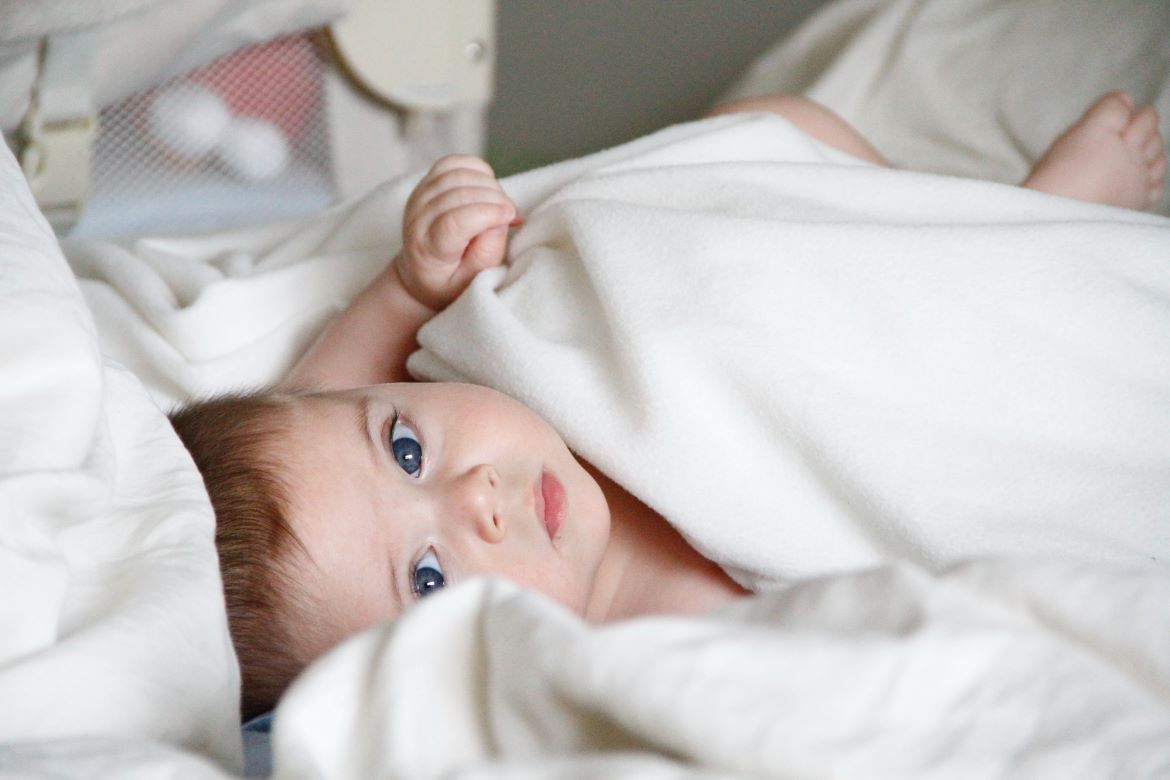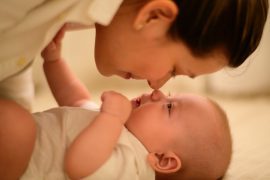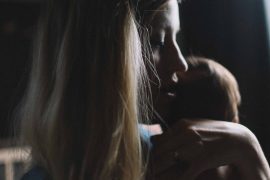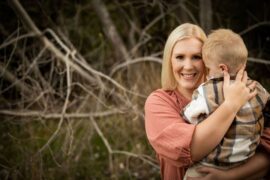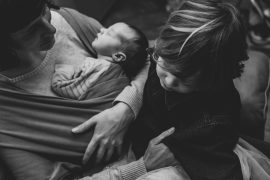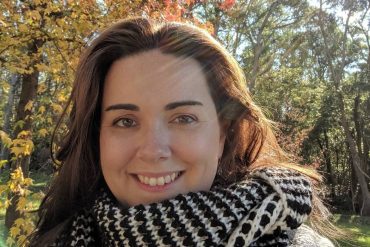By Taylor Kulik
There is so much information and so many opinions about baby and child sleep, but especially related to the idea of a child being “overtired”. Many people claim that overtiredness in babies is actually just a myth. But is it? Let’s unpack.
An overtired baby is absolutely a thing!
Babies can get overtired. Here’s where I think some people get it wrong, though: Overtiredness is not the cause of every baby sleep issue. I think many people get frustrated because it feels like any baby sleep challenge is automatically blamed on a baby being too tired, or overtired. Lots of factors impact sleep, and there are many root causes of sleep challenges, and overtiredness is just one cause (make sure you download this free guide to helping your child with some of the other factors that can impact sleep). Some children are very sensitive to being overtired, while some children aren’t, and may be just fine when they miss their sleep windows. But just because some children don’t experience noticeable signs and behaviours associated with being overtired does not mean that there aren’t any children who experience signs of being overtired.
So, what does it even mean when a child is overtired?
Each child has their own unique wake window, or in other words, the period of time they can tolerate being awake before they need to sleep again. All humans build up sleep pressure while we are awake. Once this sleep pressure is too high, we can no longer stay awake, and we must sleep to reduce our sleep pressure. Adults can handle being awake for 14-17 hours before experiencing sleep pressure that is too high, but babies and young children cannot handle wake windows this long. When a person is tired and needs to sleep in order to reduce their sleep pressure, but doesn’t sleep, then the body’s HPA axis is activated and cortisol, our stress hormone, is released. Cortisol also happens to be one of two primary hormones that help to regulate the circadian rhythm (our sleep rhythm). Cortisol is the hormone that helps a person be alert and stay awake.
Each child has their own unique wake window, or in other words, the period of time they can tolerate being awake before they need to sleep again.
Let’s summarise what we’ve learned so far: Basically, when we are extremely tired, we become more stressed, and our body releases cortisol, our stress hormone. Cortisol helps us stay awake and stimulates us.
So, what impact does being overtired have on our babies and young children?
Being overtired can cause children to seem to have a second wind – this is why when your child is super tired and has been awake way longer than you think they should be, they often seem to have so much energy and might be bouncing off the walls. Cortisol not only impacts a child’s ability to get to sleep, but it can also impact sleep architecture. Children who are overtired and have excess cortisol may: take longer to fall asleep, wake more frequently, have less NREM sleep, and even experience early rising.
Signs of being overtired include: excessive crying or incapability, back arching, rubbing eyes, frequent yawning, rubbing the face on parent’s chest, falling asleep very quickly (less than 10 minutes) when being put down for sleep, increased difficulty calming down or hyperactivity.
The main purpose of naps for babies and young children is to reduce cortisol caused by increased sleep pressure during the day. (1) Where it gets tricky is that every child is really so different in how much sleep they need in a 24-hour period. Some people assert that “sleep begets sleep” (and it does, but only to an extent), and the more a child sleeps during the day, the better they will sleep at night. But, this is not always true. Some children will thrive with long periods of naps throughout the day, while for some children, long naps will interfere with nighttime sleep. Some children thrive with shorter naps throughout the day to reduce cortisol levels slightly. There is really no one simple answer for how to approach naps for all children. Parents should follow their child’s cues to determine approximately how much sleep they need in a 24-hour period, and then evenly space that amount of sleep over the day and night, if possible, to avoid very large wake windows that could cause cortisol spikes. As mentioned earlier, some children are far more sensitive to cortisol spikes and display subsequent signs and behaviours related to being overtired, while some parents aren’t going to notice any significant changes in behaviour when their child misses a nap. This is fine! All children are different, and working towards identifying your unique child’s needs and preferences is the best way to go.
I want to emphasise again that although overtiredness is very real, and many babies experience this issue, it is not the only issue that negatively impacts sleep or causes disrupted sleep, and some children will not struggle with it. I believe that most parents are overly stressed about whether their child is getting enough sleep because there is a lot of pressure to get babies sleeping according to rigid, one-size-fits-all schedules that make parents believe all babies should be sleeping 12 hours at night and taking 3-4 hours of naps during the day. The reality is that most babies are sleeping just the amount their bodies need, and some babies just will not and do not need as much sleep as some of these sleep schedules require. Parents tend to feel stressed about this and worry that their child is overtired when they actually are sleeping quite fine, and I think this is where some of the controversy surrounding the idea of being “overtired” comes from. If your child is generally happy during the day, and doesn’t display signs of hyperactivity or overtiredness for most of the day, they are probably sleeping just the right amount.
Taylor Kulik is an occupational therapist and a Certified Baby-Led Sleep & Well-being Specialist. After her own struggles to adapt to motherhood and discovering how little support and information there is for families who do not want to sleep train, Taylor shifted her career focus to supporting new parents in a way that validates their intuition. Taylor also has specialised training in perinatal mood & anxiety disorders from Postpartum Support International, as well as additional training in child development, postpartum care, and breastfeeding. She combines this training and her background as an occupational therapist to comprehensively and holistically help the entire family thrive and get more sleep through relationships and connection, without any sleep training. She also has self-paced eCourses which provide holistic and empowering information about postpartum recovery and infant sleep. You can find more information about the services & eCourses she offers at taylorkulik.com, or through her Facebook and Instagram pages.

